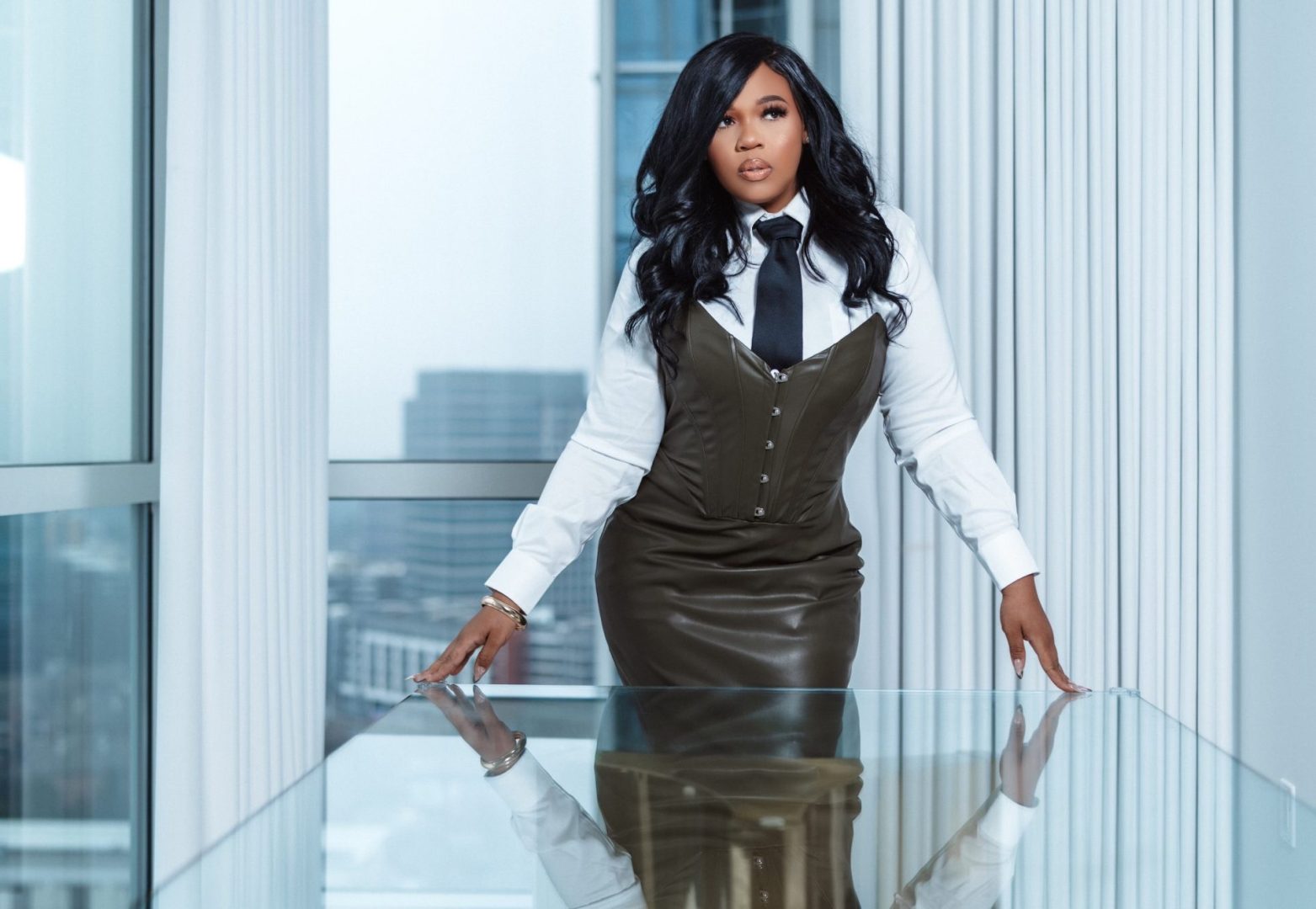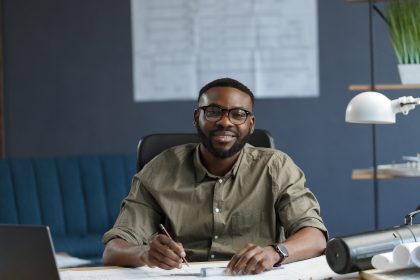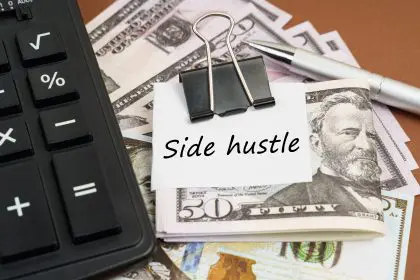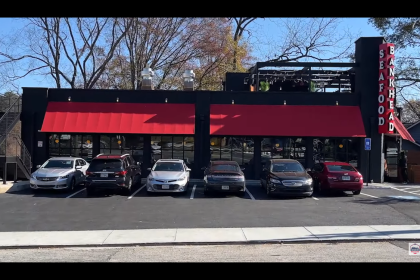Trademark attorney Rosezena Pierce draws from her dual career background to protect entrepreneurs from costly intellectual property mistakes while advocating for community empowerment.
Attorney Rosezena Pierce speaks with conviction as she delivers a metaphor that crystallizes her entire legal philosophy: “Will you build a house on land you don’t own?” The question hangs in the air, rhetorical yet pointed, as host Munson Steed nods in understanding.
“Not at all,” he responds.
“No, right?” Pierce continues. “So it’s the same equivalent to building a business or a brand if you actually don’t own it.”
The hidden complexities of trademark law
Pierce has built her practice on helping entrepreneurs navigate the often misunderstood world of trademark protection. Her expertise reveals itself as she unpacks the layered structure of trademark law that many business owners attempt to navigate alone, often with disastrous results.
“There are 45 different classes under trademark law,” Pierce explains, breaking down how trademark protection works. “That’s why we have chocolate, soap, Mac makeup, Mac computer, Delta airline, Delta faucet, Pandora jewelry, Pandora music.”
This classification system allows similar or identical names to coexist in different industries without causing consumer confusion. However, entrepreneurs who file trademark applications without professional guidance often misunderstand this fundamental principle.
Pierce illustrates this potential pitfall with a high-profile example involving basketball superstar LeBron James, who filed for the trademark “More Than Athlete” only to face opposition from a nonprofit organization that had previously registered the phrase for charitable services.
“The USPTO actually approved LeBron James’s trademark applications because the nonprofit organization had their trademark in a class where it was for charitable services,” Pierce explains. Despite initial approval for James’s applications in entertainment services and apparel categories, the nonprofit is now opposing his trademarks, claiming potential market confusion.
The example demonstrates that even with substantial resources and presumed legal counsel, navigating trademark protection remains treacherous territory.
Prevention versus litigation
Pierce positions herself as a preventative force in intellectual property law. “I always tell people there’s two types of lawyers. There’s lawyers that like to fight fires, and there’s lawyers that like to prevent the fire,” she states. “I like to prevent the fire, because it’s going to cost you way way more to fight the fire.”
This philosophy guides her approach to client consultations, where she emphasizes the importance of upfront investment in proper legal protection. Many entrepreneurs balk at attorney fees without considering the potentially devastating costs of trademark litigation or forced rebranding after significant investment.
“A lot of people think when they hear lawyer, process, that sounds expensive,” Pierce acknowledges, “but what’s even more expensive than what they’re not considering is, if you are going to invest your time, your money, and your resources into building a product or a brand, then you want to make sure that’s protected.”
She drives the point home with a relatable example: “We protect our cars before we drive them off the car lot. So you want to protect that baby that you’re investing that time, money and energy and resources into.”
The AI attorney fallacy
As technology advances, Pierce observes a concerning trend, entrepreneurs using Google and AI as substitutes for legal counsel. While acknowledging technology’s value, she offers a measured perspective on its limitations in professional services.
“Technology is moving faster than a lot, and AI is here to stay, but it shouldn’t be here to replace,” Pierce cautions. “People can use AI as a tool, but one thing AI is going to lack is a human component.”
She explains that AI cannot anticipate business evolution or identify adjacent opportunities a human attorney would naturally address during consultation. Where AI might narrowly address the specific question asked, an experienced attorney considers potential growth trajectories and ensures comprehensive protection.
“For example, if you are intentionally wanting to build a business, and let’s say you have a magazine business, and you want to build that business,” Pierce elaborates, “if you sit down with an attorney like myself, I’m going to say, well, Mr. Steed, also protecting your magazine business, you also may want to launch an apparel business, but also, too, through your magazine business, you also offer coaching, you have speaking engagements.”
She concludes with the definitive limitation: “The last time I checked the ABA has still said, AI cannot represent you in court.”
Where personal experience shapes professional expertise
What makes Pierce particularly effective in her niche is her background before law. “I was a licensed cosmetologist before I became a lawyer,” she reveals, creating an immediate connection with entrepreneurs in the beauty industry.
This dual career path gives her unique insight into the challenges faced by beauty entrepreneurs, particularly those from underrepresented communities. “Especially in the beauty industry, particularly in the Black culture, we create and we inspire a lot of trends, but we are the last ones to profit from them,” Pierce observes.
This understanding fuels her passion for helping creators protect their innovations. “That’s why it’s important as a young beauty professional who is creating something amazing that you partner with a Black female attorney like myself, so that I can help and guide you on how to actually not only just create something, but protect it so that you can profit from it as well.”
Building community through legal empowerment
When Steed asks what advice she would give young people considering legal careers, Pierce articulates three compelling reasons that reveal her vision for community empowerment:
“Right now everybody is talking about rolling back these DEI initiatives, and why it’s not important, and we know we barely benefit,” Pierce says, drawing from personal experience. “I didn’t benefit from not one of them. I had a job offer when I finish law school, but the fact that they’re showing us that they’re not intentional about our success as the Black community, we need to uplift and upheld ourselves.”
She advocates for education as the first priority, “a lot of us, we just don’t know any better, so we don’t do better”, followed by creating economic systems within the community to reduce dependency on external inclusion initiatives. Finally, she emphasizes the importance of establishing foundations for future generations.
“We want to make our ancestors proud, but then we also want the ones coming behind us to make us proud as well,” Pierce concludes, revealing the deeper purpose driving her work beyond client services.
In an entrepreneurial landscape where DIY legal approaches and technological shortcuts increasingly tempt business owners, Pierce’s clear warnings and practical wisdom offer a compelling alternative. Her expertise, shaped by personal experience and professional knowledge, provides a roadmap for creators seeking to protect their innovations while building sustainable enterprises and stronger communities.

















